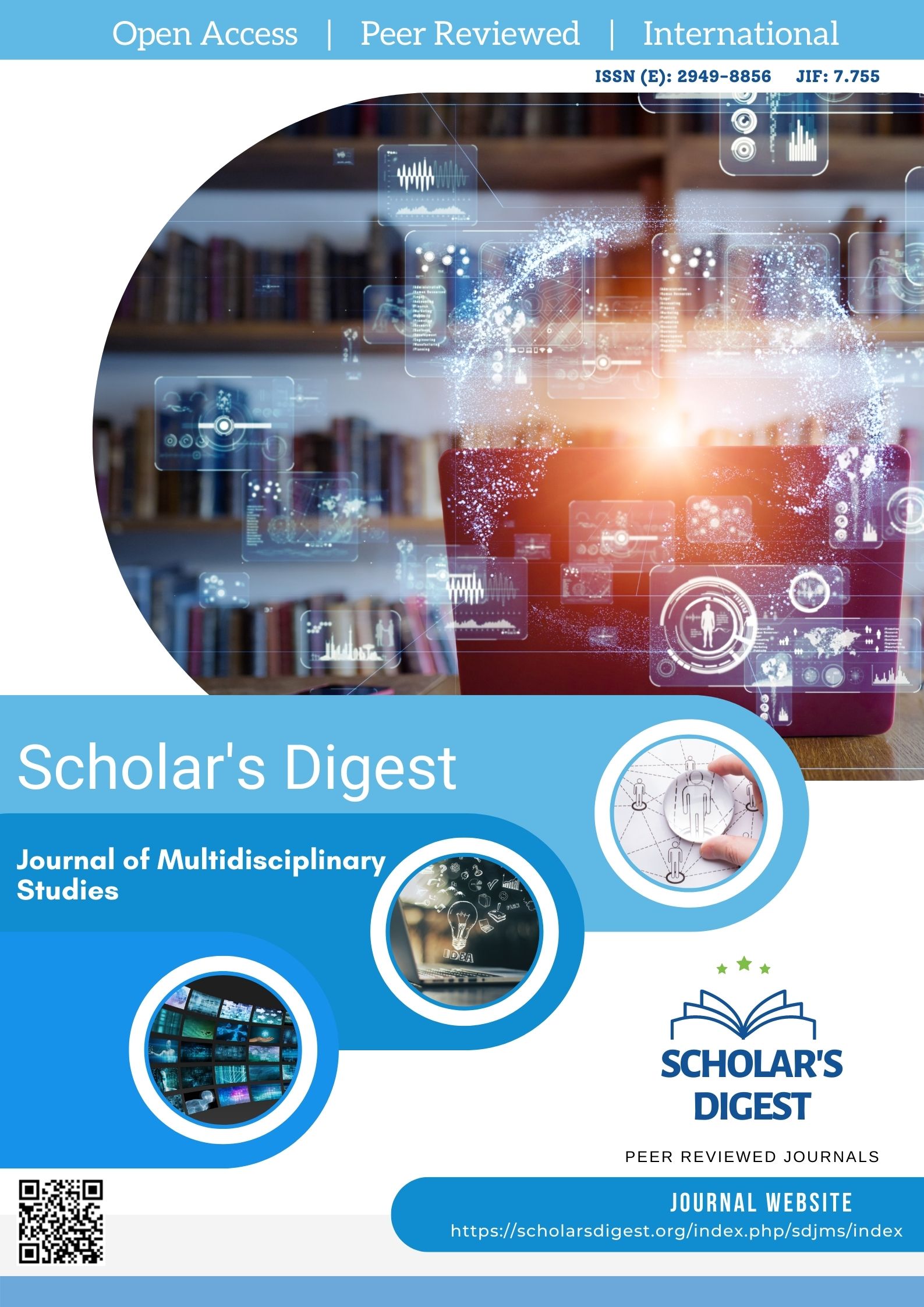SIMILARITY AND UNIQUENESS IN THE LINGUOMENTAL AND COGNITIVE SPACE OF PROVERBS IN ENGLISH AND UZBEK LANGUAGES
Keywords:
prоverb, linguistic, mentality, culture, equivalent.Abstract
The purpose of this article is to examine the linguistic and cultural aspects of proverbs in Uzbek and English, as well as to investigate the interdependence of language and culture based on similarities, mentality, and customs while analyzing proverbs.
References
M. Jo’rayev. Xalq og’zaki ijodi.2000: 177-ma’ruza
Егорова Э.В., Крашенинникова Н.А. Пословицы и поговорки как объект изучения в лингвистике // Поволжский педагогический поиск, 2014, № 1(7). - С. 106-108.
Л.Т. Бобохонова. Инглиз тили стилистикаси. “Ўқитувчи” нашриёти. 1995. 80.
Мезенцева Е. С. Пословичный фонд языка как фрагмент языкового сознания этноса // Вестник КазНУ. -№ 2. 2005. — С. 25–36. 5. Кунин А. В. Английская фразеология. — М.: BШ. 1970. — 344 с.
Ўзбек халқ мақоллари. –Тошкент: F.Ғулом номидаги Адабиёт ва санъат нашриёти, 1989. —511б 09.02.2023). 7. Gotthardt H.H., Varga M.A. (eds.) Introduction to Paremiology: A Comprehensive Guide to Proverb Studies. Berlin: De Gruyter, 2014. P. 2-10.
J. Raymond. 1956. Tensions in Proverbs: More Light on International Understanding. Western Folklore 15.3, p. 153-154.
Downloads
Published
Issue
Section
License

This work is licensed under a Creative Commons Attribution-NonCommercial 4.0 International License.








